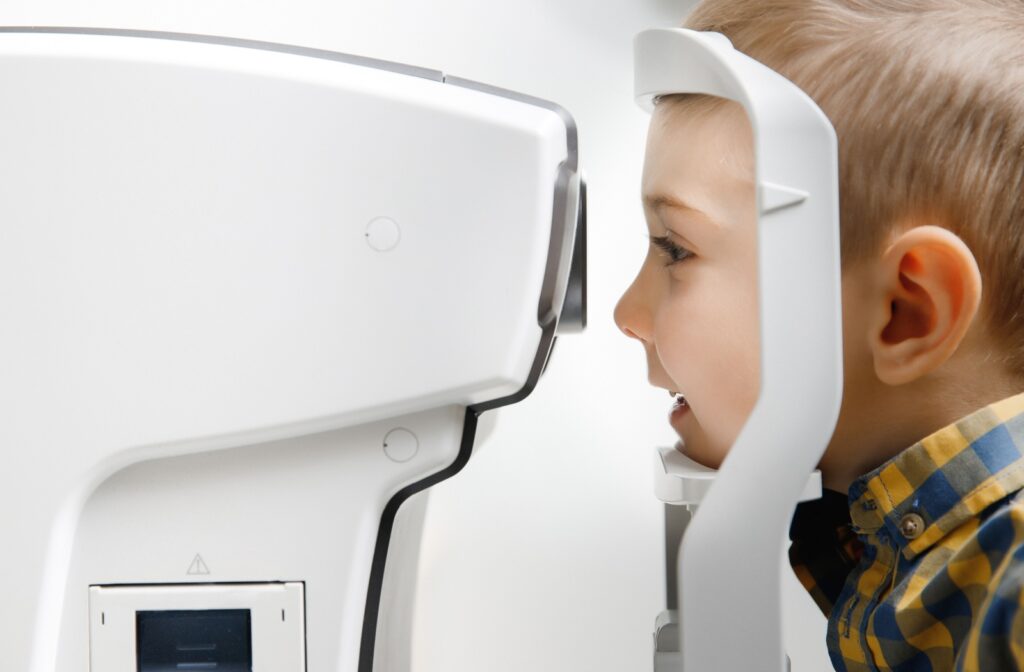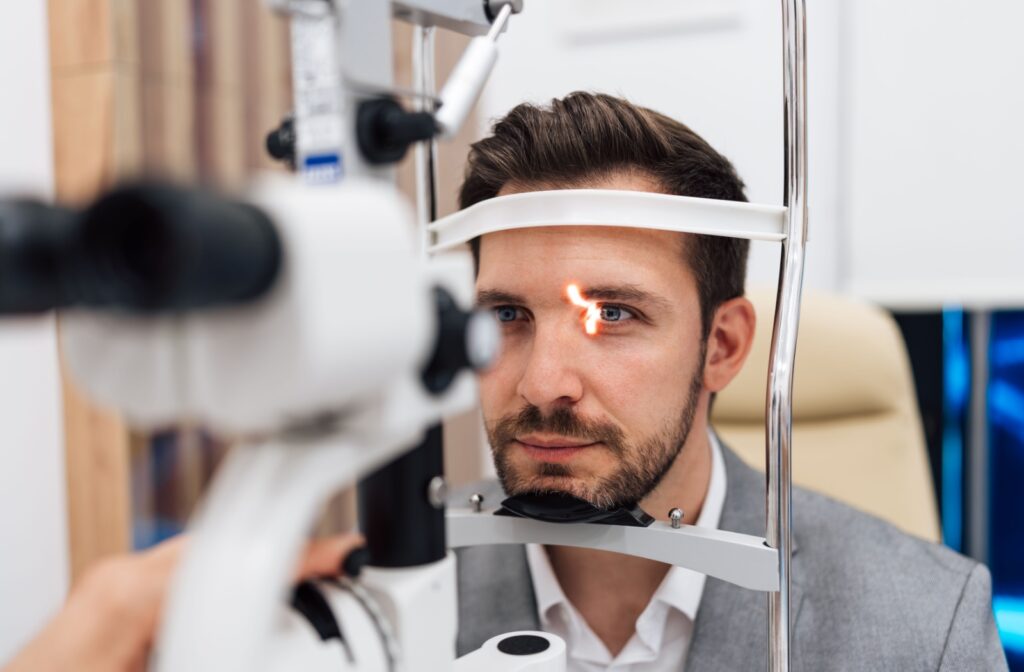Regular eye exams are a key part of your overall health care. These appointments give us a complete picture of your vision and eye health, so that we can help keep your vision clear and your eyes healthy for years to come.
The right exam schedule depends on your age, health, and whether you wear glasses or contacts. We will recommend an eye exam frequency based on your vision needs, but there are also general guidelines you can follow.
The Purpose of a Routine Eye Exam
A proper eye exam does more than just check how well you can see. It also offers a detailed look at the health of your eyes and can even reveal information about your general health.
Correct Your Vision
Your vision changes over time, sometimes so slowly you might not notice. As part of a routine exam, your optometrist checks for refractive errors like nearsightedness or farsightedness. This helps make sure your prescription is up to date.
Detect Eye Conditions Early
Many eye conditions don’t have obvious symptoms in their early stages. Regular check-ups allow us to look for signs of potential issues before they affect your vision. These can include:
- Glaucoma
- Cataracts
- Age-related macular degeneration
- Diabetic retinopathy
Uncover Other Health Issues
Your eyes give a clear view of your blood vessels and nerve tissue. During an exam, an eye doctor might spot signs of other health conditions, even before you notice symptoms. These can include:
- High blood pressure
- Diabetes
- High cholesterol
- Rheumatoid arthritis
Recommended Exam Frequency by Age
The Canadian Association of Optometrists provides guidelines for how often you should have your eyes checked. These recommendations are for people at low risk of eye problems. Let’s break it down by age group.
Infants & Toddlers
Your child should have their first eye examination between 6 and 9 months old.
Preschool Children
A child should have at least one eye exam between the ages of 2 and 5.

School-Age Children
Children in this age group should have an eye exam every year. That’s because children’s vision can change quickly as they grow.
Adults (20 to 64)
You should plan to have an eye exam at least every 2 years to monitor any changes.
Adults (65 & Older)
After age 65, you should have an eye exam annually.
Factors That Call for More Frequent Exams
These general guidelines are a great starting point, but depending on your situation, we may suggest more frequent visits. You might need an exam every year if you have certain risk factors. This helps us keep a closer watch on your eye health.
We can help you create a personalized schedule if you:
- Wear glasses or contact lenses
- Have diabetes or high blood pressure
- Have a family history of eye disease like glaucoma
- Take medications that may have vision-related side effects
- Have had an eye injury or eye surgery in the past
What to Expect at Your Eye Exam
A comprehensive eye exam is a straightforward and comfortable process. We perform several tests to get a complete picture of your vision and eye health. You’ll be guided through every step.
Your Medical History
We’ll start by asking some questions about your lifestyle, your family’s medical history, and any health conditions you have. This conversation helps us identify potential risks and gives us a better understanding of your situation.
Vision Tests
This part of the exam often involves reading from an eye chart to see how well you see at different distances. It helps us figure out if you need corrective lenses.
Eye Health Evaluation
We use special equipment to look at the internal and external parts of your eyes. This allows us to check for signs of eye disease. It also helps us spot other health concerns.
Signs You Shouldn’t Wait for Your Next Appointment
If you experience new or unusual symptoms, don’t wait for your next scheduled exam. Instead, you should book an appointment with your optometrist right away. Prompt attention can make all the difference, especially in the case of a potential eye emergency.
Call us if you notice any of the following:
- Sudden eye pain
- Persistent redness, dryness, or itchiness
- New “floaters”—small specks that drift through your field of vision
- Flashes of light
- Halos around lights
- Abrupt changes in vision
- Difficulty reading signs while driving at night
Staying on top of your eye health is easier when you have a trusted professional you can see regularly. Consistent exams with the same team help us get to know your eyes and track any changes over time. It’s like having a friend who knows your health history. At Queensway Optometric Centre, booking a routine eye exam is a simple step you can take to protect your vision for years to come. Schedule your next appointment with our friendly team today.


